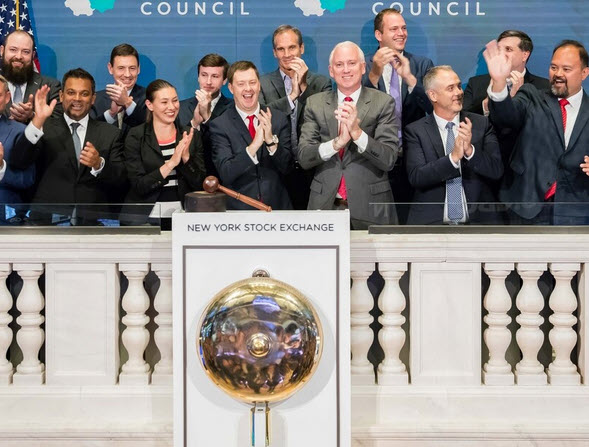 What are we to make of Wall Street’s exuberance over recent news concerning a U.S. economic expansion that refuses to die? Employers are hiring, consumers are spending and business is humming despite a dramatic economic slowdown in Asia, Europe, South America and elsewhere. Perhaps America really is an economic island, one blessed with unstinting support from a central bank that has finally succeeded in taming the business cycle? If you are too young to remember the last three or four recessions, you might actually believe that things are different this time. Wall Street Journal columnist David Harrison evidently does. Judging from his picture, Harrison is no older than 30, so we can perhaps forgive him for suggesting, to borrow Prof. Irving Fisher’s immortal declaration, that economic equilibrium appears to have reached a permanently high plateau.
What are we to make of Wall Street’s exuberance over recent news concerning a U.S. economic expansion that refuses to die? Employers are hiring, consumers are spending and business is humming despite a dramatic economic slowdown in Asia, Europe, South America and elsewhere. Perhaps America really is an economic island, one blessed with unstinting support from a central bank that has finally succeeded in taming the business cycle? If you are too young to remember the last three or four recessions, you might actually believe that things are different this time. Wall Street Journal columnist David Harrison evidently does. Judging from his picture, Harrison is no older than 30, so we can perhaps forgive him for suggesting, to borrow Prof. Irving Fisher’s immortal declaration, that economic equilibrium appears to have reached a permanently high plateau.
In fairness, it must be said that Harrison’s recent think-piece, A Bellwether No Longer Rings True, makes a good statistical case for downgrading manufacturing as an economic harbinger. He notes that although factories have had a tough year marked by falling output, investment and employment, as well as a global tariff war that threatens to drag on indefinitely, the U.S. economy overall has barely flinched. This happy if surprising state of affairs he attributes to manufacturing’s shrinking share of the economy. In its place, a burgeoning services sector has inoculated the U.S. against downturns, balancing out the inventory swings that have long been associated with boom and bust cycles.
Misleading Statistics
Or so the argument goes. But the suspicion nags that the rosy statistics do not yield an accurate picture. To be sure, a lot of fat cats have grown their wealth stupendously by holding shares in companies that on the surface seem to be doing amazingly well. And yet, two obvious examples, Facebook and Google, are just glorified advertising agencies. How long will their profits hold up in a global downturn? Another corporate behemoth, Apple, depends largely on the sale of just one very high-margin product: the iPhone, which has saturated its market and faces increasing competition from Asian manufacturers, most notably Huawei.
If these are truly the best of times as the headlines would have us believe, the statistics by which we judge them so are an inch deep. A bull market currently in its eleventh year colors our thinking more than we might care to imagine, and we are delirious if the bull has made us believe that the global downturn in manufacturing will not eventually impact consumers. Hubris and rising shares prices have kept them borrowing and spending, at least for the time being, but don’t be surprised if the stock market starts to swing more wildly than anyone can recall, signaling trouble. Leading pundits will tell us to stay the course, but that in itself could be viewed as a timely warning to abandon ship.
Comments on this entry are closed.
Hello, Rick. Based on your data, approximately when will the market turn begin? And, what “circumstance,” or circumstances, are likely to accompany the “turn?”
&&&&&&
No one on earth can answer those questions with any great confidence, Brian, and my own technical methods offer no crystal ball. In fact, as I write these words shortly before dawn, Index Futures are frolicking slightly above major Hidden Pivot targets that I might have thought impenetrable. It reminds me of the scene in “Mars Attacks” where America’s generals try to nuke the aliens in outer space, and one of them sucks the entire mushroom cloud into his lungs, vape-style, to get high. Dare I suggest, nonetheless, that we are ‘very close’ to a top? RA